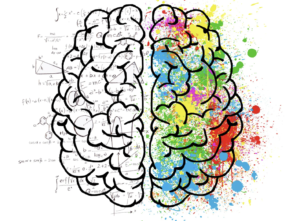Nootropics to Enhance Cognition and ADHD
Our Mental Health Expert, Dr. Meghan Van Vleet, Discusses How Nootropics Can Improve Your Attention, Focus, Memory and Learning
Dr. Meghan Van Vleet is a naturopathic doctor at Boulder Natural Health who specializes in ADHD and other neurodivergent issues. She studied mental and cognitive health for the last 15 years. Dr. Meghan mentored with Dr. Walsh, PhD with the Walsh Research Institute, Dr. Bredesen, MD and colleagues at Apollo Health and Dr. Greenblatt, MD at Psychiatry Redefined. She has completed a 2-year fellowship with Psychiatry Redefined including an ADHD Intensive. She is also a mother of a neurodivergent child.
What is a nootropic?
Nootropics are a diverse group of medicinal substances that increase blood flow and the delivery of nutrients to the brain. These substances may also protect the brain from oxidative stress and inflammation. They can also be an herb or a plant constituent, a vitamin or nutrient, an amino acid or a pharmaceutical. Nootropic use show improvement in thinking, learning and memory. One of the most common nootropics used in our society is caffeine.
Why are nootropics helpful in ADHD?
Nootropics enhance cognitive functions such as memory and learning, especially in ADHD where these functions are impaired. They can increase attention and focus, enhance memory and recall, and increase motivation. Nootropics can also help increase levels of nor-epinephrine and dopamine in the brain. Because ADHD is a condition where dopamine is dysregulated, nootropics can enhance the regulation and production of these beneficial neurotransmitters. Nootropics also limit the production of stimulating neurotransmitters such as glutamate. They slow the production and release of histamine, which is helpful for ADHD because histamine promotes inflammation.
Which nootropics are the best for ADHD?
The most beneficial noootropics for improving ADHD are oligomeric proanthocyanidins, or OPCs, which are a type of polyphenol or antioxidant. OPCs are found in plant pigments such as the blue in blueberries, the red in red grapes, the green in green tea, the dark brown in cacao (chocolate). Plants produce these antioxidants naturally in order to protect themselves from environmental harms. These antioxidants protect the human brain from environmental toxicity.




